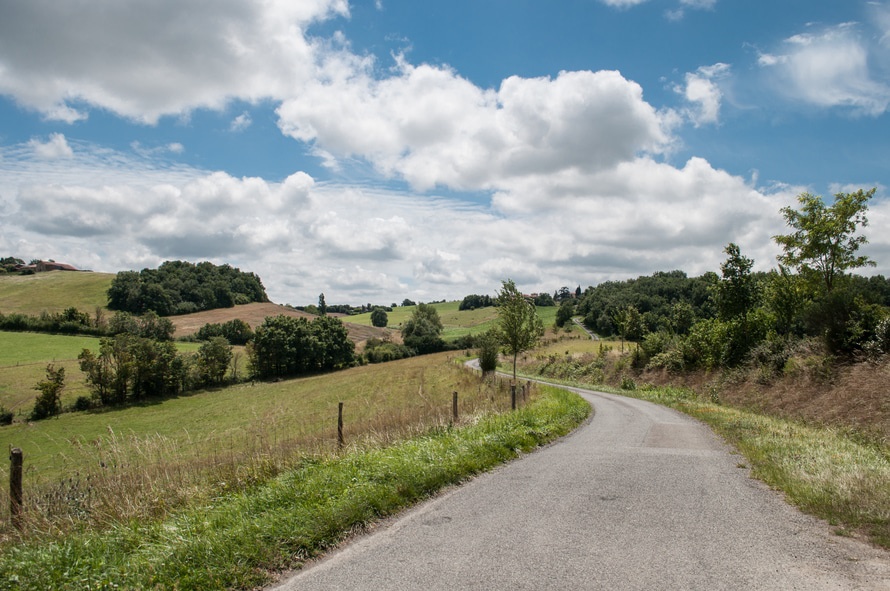If you’ve already asked yourself is buying land a good investment and answered yes, then you need to know what comes next. The first step starts with you and your investment objectives.
1. Ask yourself key questions to clarify your objectives
- Why do you want to own land?
- What do you plan to do with it: develop it or leave it as raw land?
- When do you need a return on your investment?
- What is your risk tolerance?
- Are you satisfied with a non-liquid investment?
- Do you need cash flow, or can you park your money?
- Is buying land a good investment for you?
Be clear on your investment objectives before you start. You have to know what you want to do with the property—and what you want the property to do for you.
2. Walk the property
Many people who are used to investing in land buy without ever having seen the property in person. There are many ways to investigate investment land such as Google Earth, topography maps, and real estate websites.
However, if you’re new to buying land for investment, taking the time to see the property in person will help you head off potential problems. Look for items such as:
- Topography
- Potential drainage issues
- Shape of the property
- Buildability
- Surrounding properties
Sometimes visiting the site can show you what a satellite image can’t: whether or not you’ll be able to resell the lot. There’s usually a reason that it’s vacant in the first place. Perhaps there’s an issue with neighboring properties such as old gravesites or Dumpster areas. It never hurts to see with your own eyes what you’re buying into and whether the investment land is truly a good deal.

Image Source: Pixabay.com
It may also be a good idea to get topography and soil reports, according to US News. They also say to make sure the current owner hasn’t made agreements with neighbors concerning access or parking.
There are other considerations, such as whether the investment land has road access and if it’s located in a flood zone. All of these factors will determine whether or not the property is suitable for your purposes.
3. Check out zoning issues
Depending on why you want to use land as an investment, you’ll need to make sure the local zoning for the property is compatible. For example, if you want to purchase land to eventually grow a vineyard, you’ll have to make sure you’re not buying land in an industrial zone.
You should be able to find out the zoning of an area by asking the property’s seller or by going to the local government office and asking for a zoning map.
4. Look for utility hookups
Is the investment land already set for electrical, sewer, and water hookups? If not, you need to find out if the hookups are available at all and what the cost will be to lay the lines.
If there isn’t currently water access, you’ll need to know if you can drill a well, or if water will have to be hauled to the property. Again, there are cost considerations to factor in, and these should help you decide whether the investment land is right for you.
Even if you plan to simply sit on the land and let it appreciate rather than spending money on development, you need to realize the impact of not having water and utilities already available when you decide to sell.
5. Investigate the tax situation
Remember, there is no cash flow when you own investment land like there is with rental properties. Because you do not have income from the lot, you will be in a negative cash flow situation each year because of property taxes.
Make sure you know what the applicable taxes on the investment land have been in the past, and what they are projected to be going forward. According to ROI Land Investments, anything above 4% of the market value should give you pause.
There are other tax implications to consider. Assuming you are not a real estate developer, a regular investor can deduct property taxes on their Schedule A as a personal itemized deduction, according to Nolo.com. Of course, all tax situations should be discussed with your accountant, based on your individual circumstances.
6. Secure financing
Many banks are reluctant to lend money for investing in land. Bankrate.com says that raw land is the hardest kind of property to borrow against. Lenders will generally require between 20% and 50% down on the loan.
Because these loans are harder to secure, many property owners will offer financing to potential buyers. Make sure to investigate all your options for the best deal on interest rates, repayment options, and other terms of the
Source: AdvisoryHQ

